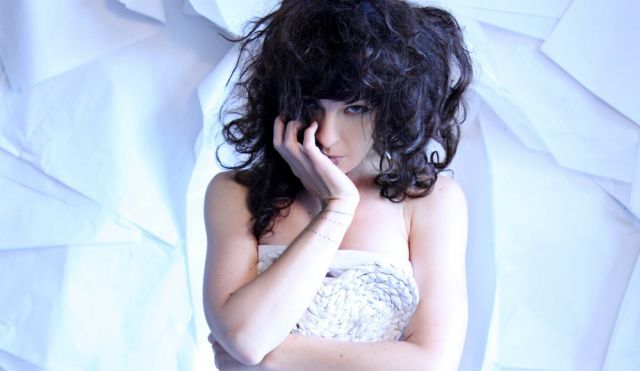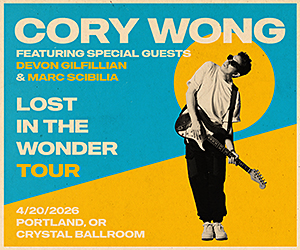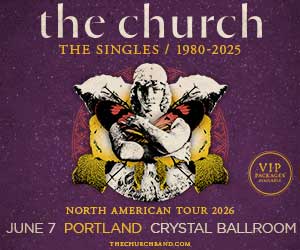Home >
08/21/2012
The crow that nests on 'The House That Jack Built': A Q/A with Jesca Hoop
By ANDREA JANDA // OMN spoke with Jesca Hoop before her show at Alberta Rose Theatre with opener Jesse Harris on August 16th, covering the topics of dreaming, ghost stories, Mormon mysticism, giving a record "life," musical collaboration, living in the UK versus the US, and how going into "crow mode" allows one to collect shiny ideas to build a songwriting nest for burrowing.
Hi Jesca, how are you?
I’m doing good, thanks! I’ve got the right time, have I not?
You do! I know, it’s the time change. Are you in Manchester or are you stateside?
Ah, I’m glad, good stuff. Yes, I’m in Manchester.
First, I really adored Hunting My Dress and I was really excited when this new album came out. In listening and comparing, I noticed there’s a lot more production and a sort of expanded canvas of music. How was the writing process different on this album,The House That Jack Built, versus Hunting My Dress?
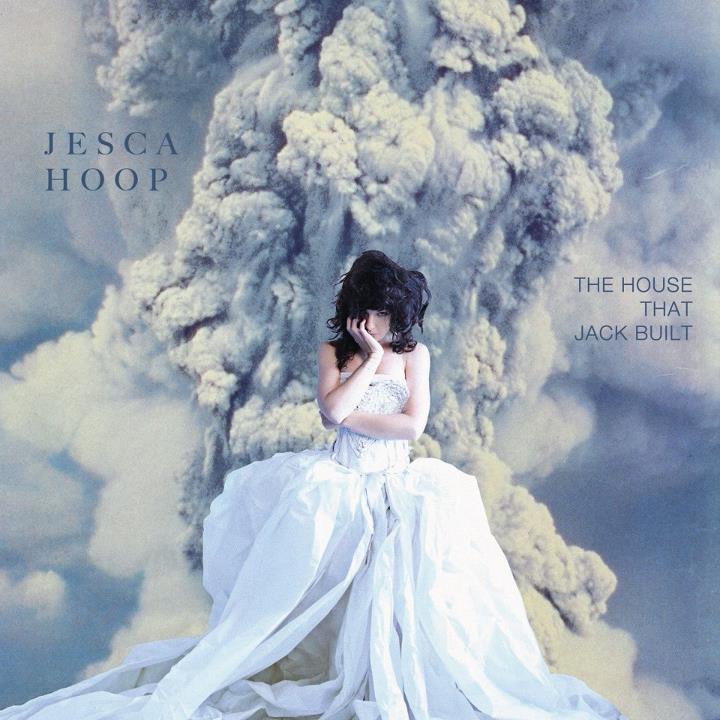
I think that the writing process was a little more pressurized. I know it seems like a long time since then. I had put out another little body of work [Snowglobe] in the UK here, so I’ve actually been quite busy and the writing was kind of crunched into a smaller period of time.
I think Hunting My Dress was a little easier to write—I don’t know, it felt more effortless, in terms of not really caring if I’m communicating very clearly, necessarily. Whereas, with this one, I tried my best to grow in a direction that I hadn’t yet grown and to communicate more plainly to the listener, almost on their terms rather than leaving room for interpretation, just telling the story very directly.
It’s a little more difficult to tell something directly because you have to know exactly what you’re talking about.
Yes, and sometimes, you have to be very blatant about it.
Yeah, with Hunting My Dress, there’s a lot of discovering what a song could be about by combining words together. With The House That Jack Built, it was like, “I want to write about this, so let’s figure out how to make a song that’s at least this long, have a beginning, middle, and end, and also, try to not use so many words.” There was a whole bunch of parameters I set on myself with the writing on The House That Jack Built.
Do you feel it’s less dense, lyrically?
Not everywhere. I think there’s less words overall, but it is no less dense in terms of the content, what the songs boil down to, what they mean and the message that they deliver.
I ask about the comparison of these two because it occurs to me in some way, that Hunting My Dress = MOTHER and The House That Jack Built = FATHER. They seem to be sort of, partial companion pieces of reflection on the loss of your parents. I’m wondering if you could speak to that a little.
I actually hadn’t thought of that before, but I can see how you would see it that way. The release of my first record, Kismet, my mother was passing during that time and she didn’t get to see the release. Her passing informed a good portion of the songs, if not the entire body of the work on the next. My father’s passing happened in between Hunting My Dress and The House That Jack Built, and I think it’s as simple as that really. Not that my father’s passing informed every song on the record either, but there is something more tangible.
For some reason, The House That Jack Built feels more sad. Even though there’s two songs for my mother on Hunting My Dress and two songs for my father on The House That Jack Built, The House That Jack Built has a gravity that Hunting My Dress doesn’t.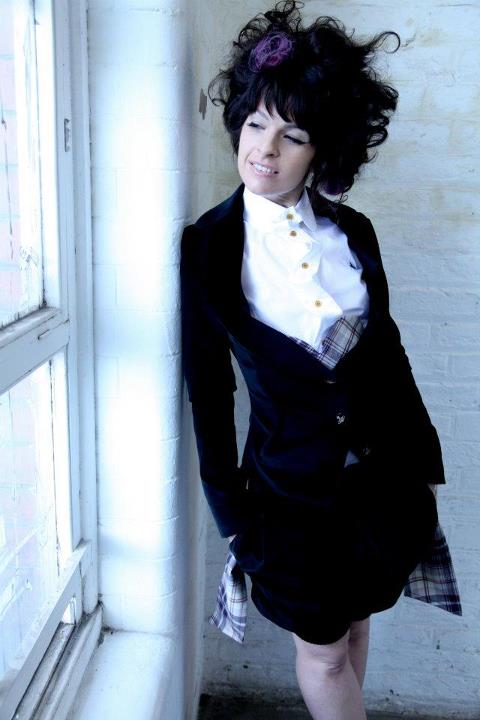
I watched your video discussions and interpretations of some of these new songs, but the one I still questioned a little was "Dig This Record." It reads more like self-deprecation than a solicitous plea. Is this song about spelunking for forgotten music, or are you worried you will make music that is forgotten? What are you talking about on this song?
[Laughs] I think it speaks to all the van Goghs in the world. All the artists who put out very valuable music that could never see the light of day or may not be valued until after they're dead, really valued for what they do. It just calls to all the records that haven’t been given their fair shot.
What do you feel is one of the most underrated records?
Underrated record in which way: in its critical acclaim or its paper sales?
Perhaps, is there something you’ve listened to that you think, “Gosh, this really doesn’t have enough attention.” And you revisit it and find it doesn’t have enough appreciative acclaim, not necessarily monetary acclaim.
Well, there’s so many records that don’t... but one in particular? [Long pause] I think what I have to say is there’s so much good music in the world. It is not as simple for those records. Just because a record is great doesn’t mean it gets to live—there’s so much more involved.
I think very few people actually understand how to give a record a life, especially if you’re working on an independent level, there’s so many factors involved in making that record available to people and letting it circulate. Particularly if you’re treading new territory and trying to give something from a unique perspective. I think there’s just too many of those records in the world.
So, Tom Waits, Guy Garvey, and Peter Gabriel—you’ve been involved with all these big, prolific names in music, who would you secretly like to collaborate with?
Secretly? [Laughs conspiratorially] I’d love to do a trio with tUnE-yArDs and St. Vincent.
That would be amazing!
It would be, I think!
Elbow’s Guy Garvey was obviously an inspiration to the big move to Manchester. How did you initially come to collaborate with him?
Guy runs a radio show and in searching for content, he came across my music from a friend who put one of my songs on a mixtape. It was still at one point, a radio interview, and we just made friends through that interview and I did some touring with them [Elbow]. Actually, before we toured, I asked him if him if he’d like to join me on the song “Murder of Birds.” So, it was just through a musical conversation that a collaboration opened up.
“Deeper Devastation” is a song that really struck me, and made me consider the ideas of strength and vulnerability. What song are you most proud of or surprised by on this album?
I would say "Deeper Devastation," actually. I think it's because I wasn't going to put that song in the lineup of options. And I think that it was more embellished by my friend and co-producer Blake Mills, who I think helped the song develop. Then Shawn Everett [engineer] suggested that I do something in particular with my voice. He said, “Try shouting out these lines.” It never occurred to me to do something so aggressive in the song. Without that direction it was kind of a sleeper, but the vocal direction that he gave me shocks the song awake, and gave it its emotional girth.
Listen to “Deeper Devastation”:
I've seen your music described as "dark nursery rhymes" and "bleak folk"—similarly, do you have any favorite stories or fairy tales from your childhood?
I tell them all the time. [Laughs whimsically] I’ve been incorporating storytelling, loving the breaks in between songs. I’ve been telling stories about things that happened in my upbringing, like... a strange kind of Mormon life. One that I’ve been enjoying recently is about when I fell asleep in this room that had no windows. I haven’t been telling this one on stage, but I’ll tell it to you.
Thank you!
I was in my bedroom that had no windows in it, and it had two single beds and it was very, very dark in there. I was taking a nap in the middle of the day. I wasn’t sure and I don’t know now if I was awake or asleep when the door opened and my sister was standing in the doorway, eclipsed by this stream of light coming from the outside. The light was tunneling past her, and I saw this sort of, shadow of her. She was gnarling her fingers over in this kind of claw motion and she was making this monster face at me with the gnarling, making this growling sound. And then the door closed and there was this green cloud in the room that I could see and feel. And the green cloud came and hovered over me in bed.
I realized it was much like the old story where Joseph Smith, the prophet of the Mormon religion, was in this grove and he was supposed to meet God and Jesus Christ for the first time [First Vision] and Lucifer came in the form of this heavy weight pressing down on the ground. I was 13 or 14 at the time, and I was still quite in the thick of my indoctrination [into Mormonism]. The cloud came in during my nap, pressing down on me heavily and I had this same sense, like I was being pressed down on by one of his agents, if you know what I mean? I felt the cloud pick me up and bring me over the two beds and then drop me in between them, where my body started tingling from head to toe, a sort of sharp, electrical feeling everywhere. And I woke up in between the beds on the floor with that very sensation, which lasted through what I cannot tell was a dream or it actually occurred. So there’s a little spooky story for you from my childhood. [Laughs]
This would be a good ghost story to write about, put into a song perhaps.
Yeah, yeah. [Laughs] The Mormon faith is so kind of, mystical, it really is. At the time I was convinced it happened, because at the same time there was a woman, a ghost that lived in the theatre of our house who was seen a few times, not by me, but by other people. So, I had this metaphysical, mystical approach to life at the time, and now, they’ve just entered my archive of stories.
Watch the official video for "Born To" from The House That Jack Built:
How has living in England changed the way you live and work—maybe a sort of day in the life in LA versus a suburb in Manchester?
Well, I would say I have much more consolidated, focused approach to work, for a few reasons. I think I feel far more on track living here in England as far as seeing the big picture, but I think that really has to do who was in my life when I was living in the States and who is in my life now, who is helping me carve out this road and set myself up for the long haul. I feel better equipped now than when I was living in the States.
Creatively, I feel no different. I feel like I’m carrying the same grasses that I was always carrying, but I have a further reach into life, a broader perspective. All these things have to come with time as well. It’s always hard for me to answer that question because there isn’t a real specific answer to render.
It sounds like it’s a different level of support or a more focused energy with what you’re doing creatively.
Yeah, and also just enjoying the further reach into the Old World and having more chance to travel, having more of a scope on the world at large—it helps tremendously in writing.
Of course, it always depends on who you meet and how the wind takes you, but do you think you'll ever make it back to the States at some point?
I do have family there. I’m working towards having a base in the United States and having a base here in England as well.
How has touring been going? Are you showcasing anything new or hidden that didn't make it onto The House That Jack Built?
You know, we haven’t. We have so much material between the material that people want to hear from Hunting My Dress and from Kismet that there’s really not enough time in the set. We’re playing about 90 percent of The House That Jack Built because it’s so much fun to play and then filling in the rest. We haven’t been playing anything from Kismet—I’m kind of letting that one age. So no, the answer is no. [Laughs] There’s too much to do with what has been released already. But we do once in a while play the b-side that we’ve released fromThe House That Jack Built called “Moon Rock Needle,” which is just really fun, the crowd loves it.
But to answer your question, the touring has been going extremely well. The response to the show has been super. What we’re doing here in the UK is going to be different. I’m working with different bands in the different locations, so it’s a different musical experience for me each time, and I’m about to go spark up a whole new collaboration in the States, which is going to be a challenge and very fun as well.
What's next for you musically or personally? Is there anything you are looking forward to doing or exploring perhaps during this tour or after?
I’m in crow mode, which means I’m gathering all sorts of shiny ideas into my little nest of [laughs] writing ideas, one that I will burrow in eventually and get into the nuts and bolts of writing songs. But right now I’m kind of really just gathering the little gems of what could make a song, tiptoeing around the ideas. Then I have that sense that very, very soon, if not today [laughs], I’m going to have to get into the hard work of writing a decent song.
Bringing all the pieces together...
I’ll keep my fingers crossed.



